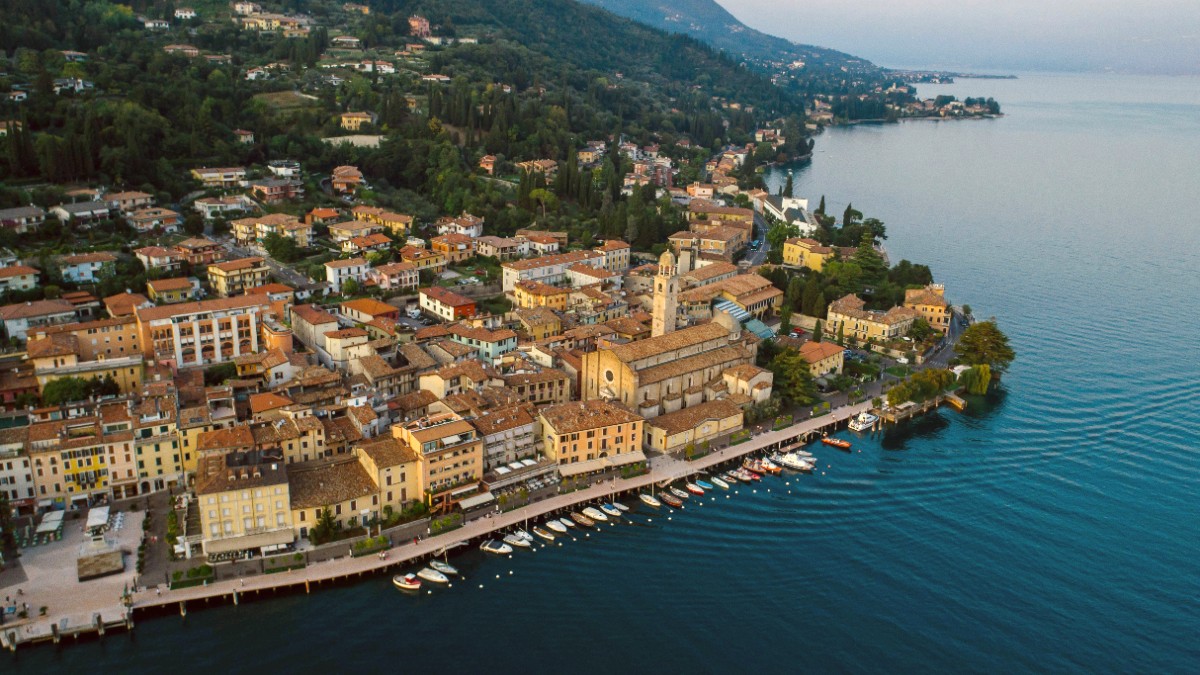
Lombardy And The Lakes, Italy
Brescia experiences a humid subtropical climate, with warm summers and cold, often foggy, winters. Spring (April-May) presents mild and pleasant temperatures, from 10°C to 20°C (50°F to 68°F). The landscape bursts with blooms. Moderate rainfall occurs, often brief showers. Humidity remains comfortable.
Summer (June-August) in Brescia is hot and humid, with temperatures between 25°C and 35°C (77°F to 95°F). July and August bring the warmest weather. Thunderstorms are possible. Autumn (September-October) brings pleasant weather, from 15°C to 25°C (59°F to 77°F). The air feels crisp and comfortable. Winter (November-March) is cold, from 0°C to 10°C (32°F to 50°F). Fog, known as "nebbia," is common. Occasional snowfall happens in the city, more frequent in the mountains.
Each season presents different advantages and disadvantages for visitors.
Brescia's Po Valley location brings specific weather phenomena. Summer can experience intense thunderstorms, sometimes with hail, which may alter plans. Always check local forecasts. Winter often brings thick fog ("nebbia") to the Po Valley, reducing visibility but adding an atmospheric touch. Prepare for these conditions with appropriate clothing.
Warm weather, lake activities.
Warm, sunny for lakes. Long daylight hours.
Higher prices, larger crowds, heat and humidity.
Ideal balance.
Pleasant temperatures for sightseeing. Fewer crowds. Lower prices. Beautiful scenery.
Possibility of more rain. Some seasonal attractions might have reduced hours.
Fewest crowds.
Fewest crowds for intimate experience. Lowest prices (excl. Holidays). Festive atmosphere around Christmas. Winter sports in mountains.
Cold, often foggy weather. Shorter daylight. Some attractions closed or limited hours.
For sightseeing, cultural tours, and city exploration, April-May and September-October present comfortable temperatures and fewer crowds, making walking tours and museum visits enjoyable.
Lake activities (Garda, Iseo) are best from June-August for warm water and services. Hiking and cycling are ideal in spring and autumn. Skiing/snowboarding happens December-March in the Alps. Wine tasting in Franciacorta is possible year-round.
May or early June, starts and ends in Brescia. Book accommodation well in advance.
Vary by winery and region, often in autumn during harvest.
Regularly throughout the week in various squares.
Late November to December in the city center.
Check local listings for specific dates.
Italy is part of the Schengen Area, a group of European countries that abolished border control at their mutual borders.
Non-EU/EEA citizens generally do not require a visa for stays up to 90 days within any 180-day period for tourism or business. This applies to citizens of countries like the United States, Canada, the United Kingdom, Australia, and New Zealand. The 90-day limit applies to the entire Schengen Area, not per country.
Carry these documents when traveling to Italy. No general entry fees apply for tourism. Standard immigration procedures at first port of entry.
Prices vary based on season, booking in advance, and personal preferences.
Italy is a safe country for tourists, but awareness of common issues and preparedness for emergencies is prudent.
No specific vaccinations for entry, but ensure routine ones (MMR, DTaP, Polio, Varicella, Influenza) are up-to-date. Consult a doctor or travel clinic 4-6 weeks prior.
Sunburn/Heatstroke (use High-SPF sunscreen, hats, hydration). Food/Waterborne illnesses (tap water safe, high hygiene standards). Minor ailments (pack a Basic first aid kit).
Mosquitoes present during warmer months. Use Insect repellent (e.g., lemon eucalyptus).
Emergency Number: 112
Italy has a public healthcare system (Servizio Sanitario Nazionale - SSN). EU citizens with an EHIC access public services. Non-EU citizens typically need comprehensive travel insurance for medical emergencies; otherwise, full costs apply. Dial 112 for all emergencies (police, ambulance, fire).
Ospedale Civile di Brescia is the city's main public hospital. For non-emergencies, ask your hotel for a local doctor or pharmacy (farmacia). Pharmacists provide advice for minor ailments.
Tap water in Brescia is safe and potable. Food hygiene standards are high. Enjoy local cuisine with confidence.
Brescia is generally safe. Pickpocketing may occur in crowded tourist areas (Piazza della Loggia, train station, public transport). Keep valuables secure, consider an RFID-blocking wallet or a Money belt.
Historic center is well-lit and generally safe, even in evenings. Exercise caution in less populated or dimly lit areas, especially late at night. Area around train station may have more transient activity.
Earthquakes infrequent in Lombardy; buildings adhere to seismic standards. Heavy rainfall may cause localized flooding. Summer heatwaves occur; follow sun safety.
For lost or stolen documents, report the incident to the local police (Polizia di Stato or Carabinieri) immediately to obtain a police report. This report is necessary for replacement documents and travel insurance claims.